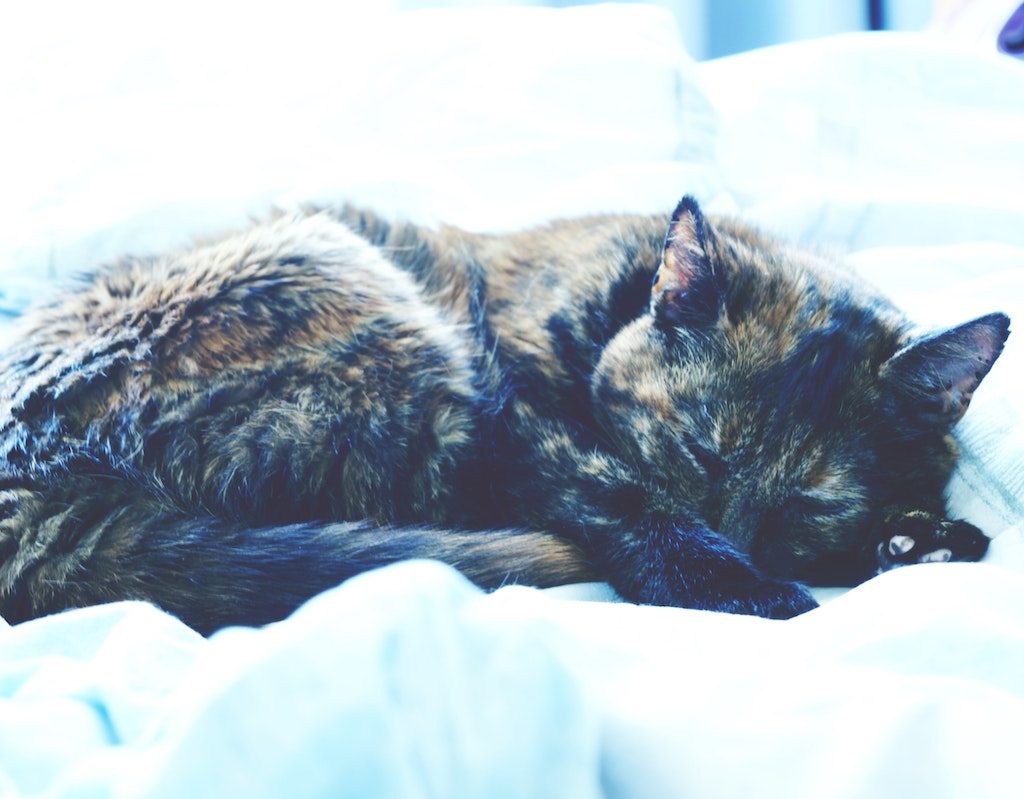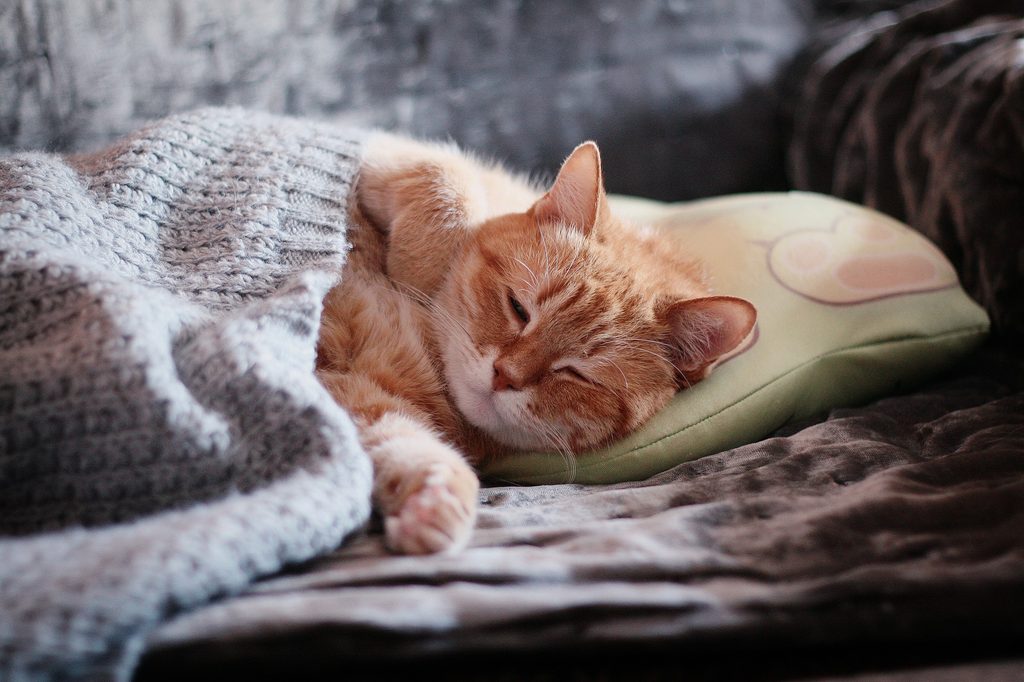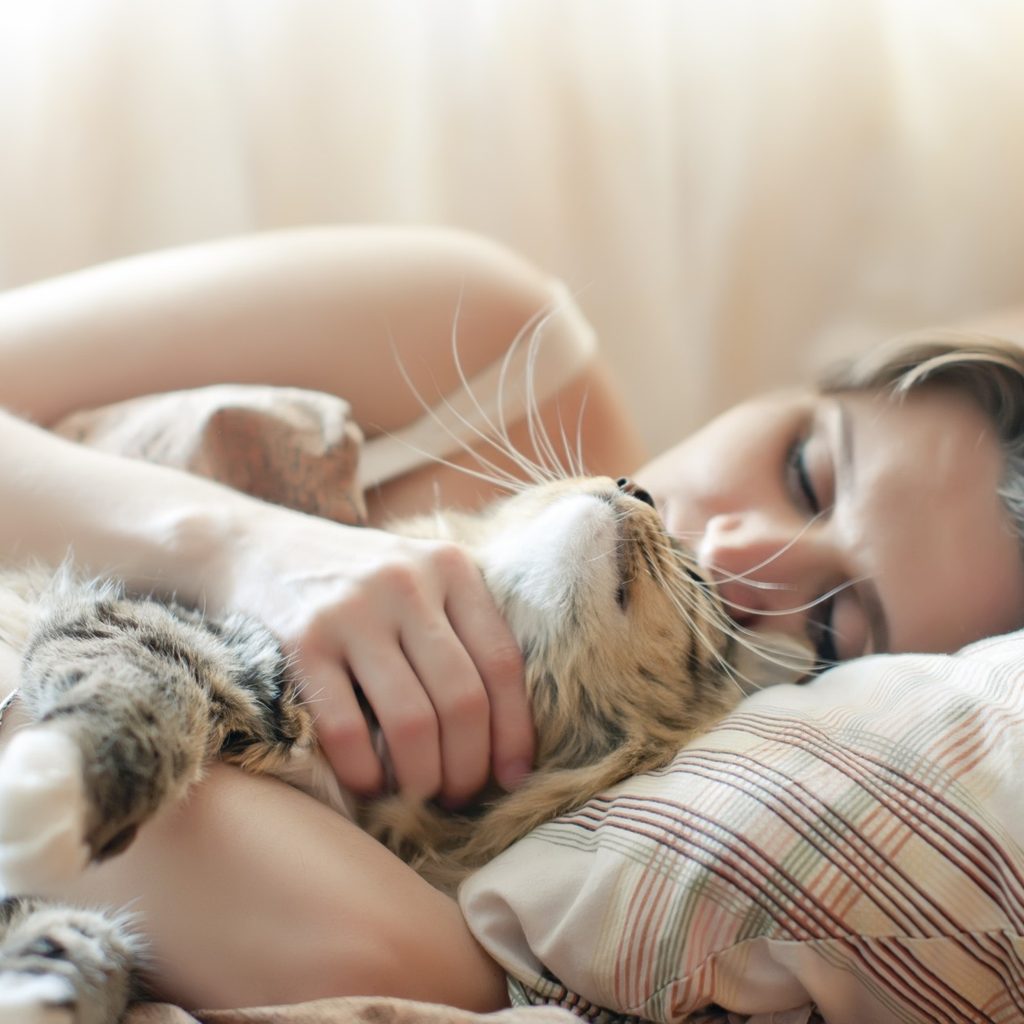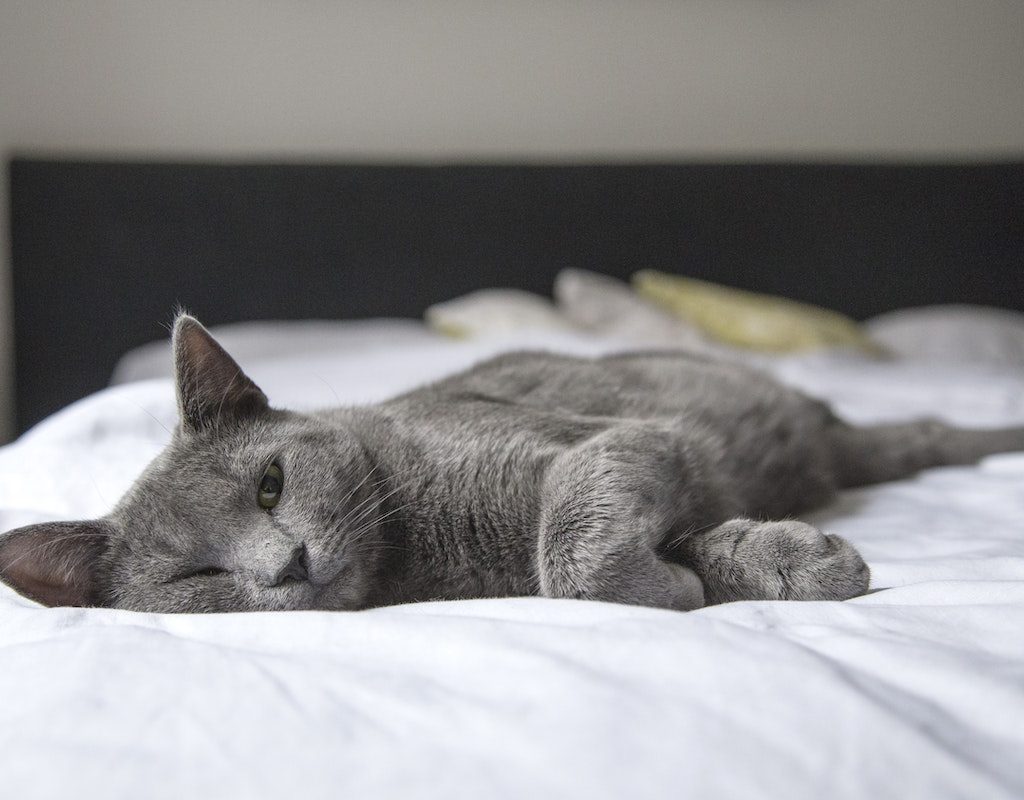
Few first-time cat owners expect their cats to be affectionate, yet many cats seek their owner’s attention. Compared to dogs, cats are typically thought of as more standoffish and less loving. That’s certainly not always the case. You may be surprised when your otherwise aloof cat prefers to sleep in your bed over any other place in the house, but cats have many reasons for wanting to sleep in your bed. Read on to learn why your cat likes sleeping in your bed and the pros and cons of letting them do so.

Reasons your cat likes sleeping on your bed
How did your bed become your kitty’s favorite sleep space? Several reasons could be in play.
Your cat loves you
Though they sometimes act indifferent, cats love people just as much as dogs do. Sleeping in your bed may be your cat’s way of letting you know they care. When your cat sleeps with you, they show that they enjoy your company. This is especially common if you met your cat during the first four to nine weeks of their life when imprinting occurs. If you were a stable and caring presence during this time, you’ve likely imprinted on your cat and gained their complete adoration and trust.
Your bed is oh-so-comfortable
Cats can sleep up to 15 hours a day — they are sleep pros. They’ve probably tried to nap in every spot in your home, so they know the comfiest, warmest, and best locations for napping. It makes sense that they would try sleeping in your bed. And all the blankets and pillows you put on your bed for yourself only make it more enticing for your cat. After all, you find your bed comfy, so why wouldn’t they?
Here are some products you could try to give your furry friend their own comfortable bed:
They like warm places
Your cat loves lounging in warm places. They may curl up by the window in the sun, on your freshly cleaned laundry right after you take it out of the dryer, or among the blankets on your bed. There’s actually a scientific reason why your cat loves warm places: A cat’s average body temperature is 102 degrees Fahrenheit. When the weather is warm, they can easily maintain this temperature. But, when it gets colder, your cat has to burn more calories and expend extra energy to remain at the proper temperature. Sleeping in your cozy bed next to you is an easy way for them to stay warm. They can absorb your body heat, so they can stay nice and toasty with no extra effort.
Your cat feels safe in your bed
Your cat may sleep with you because they feel safe in your bed. Animals are most vulnerable when they’re asleep, and there’s safety in numbers. This is ingrained deep in your cat’s brain from their ancestral days in the wild. Their instincts tell them that lowering their guard while asleep could be dangerous.
For their own safety, your cat may choose to sleep with you. Together, you have better protection against predators. And, at least one of you will likely awake at the sounds of danger that the other may sleep through. If your cat is joining you in bed, it may be for your protection, too.
Your cat: What’s mine is mine and what’s yours is mine
Whose bed is it, anyway? While you’re wondering why your cat wants to sleep in your bed, they may wonder why you are sleeping in theirs. Cats are very territorial and often claim your belongings as their own. From your cat’s perspective, you may be sleeping in their bed with them.

Should you let your cat sleep in your bed with you?
Whether to share your bed with your cat is a personal decision, and there’s no right or wrong answer. Some people enjoy the companionship while they sleep; others find it disruptive and bothersome. Here are a few pros and cons of sharing your bed with your feline friend.
Pros
- Bonding: Sleeping in the same bed can help you spend some quality time together and feel emotionally closer.
- Warmth: While your cat may sleep with you to keep warm, you can do the same. Sleeping with a cat can keep you cozy and warm all night long.
- Stress relief: Petting animals releases a chemical in our brain called oxytocin, the feel-good hormone. It can also lower cortisol levels, which decreases stress.
Cons
- Allergies: If you are allergic to your cat, they probably shouldn’t sleep in bed with you.
- Discomfort: Cats are usually more active at night and may disturb your slumber. Plus, if your cat has a habit of sleeping on top of your chest or head, sleeping can be rather difficult.
- Hygiene: Indoor cats seem to track litter wherever they go, and outdoor cats could carry diseases. If you’re worried about the cleanliness of your bed, don’t let your cat sleep with you.

Does my cat love me if they sleep on my bed?
The fact that your cat likes sleeping on the bed — next to you or when you aren’t there — is a sign they love you. Cats may want to snuggle or be next to something that smells like their favorite human: You. The behavior shouldn’t come as a surprise. As their person, you take care of your cat by feeding them, playing with them, and cleaning up after them. They feel safer and better knowing you’re near. However, cats can get a reputation for being standoffish and aloof. Even if your kitty displays these traits, they still love you and may show their affection by taking a literal cat nap on your bed.
Cats have a lot of good reasons for sleeping in your bed. They may choose to rest with you for warmth, protection, or out of love. But whether you want them to is a different question entirely. There’s generally no harm in letting your cat sleep with you, and it’s the sign of ultimate affection. Sleep tight!




